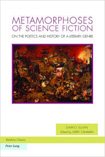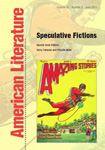Links for the Day after Christmas
* I consider myself extremely skeptical about the overall theoretical usefulness of object-oriented ontology (see Vu’s excellent Polygraph review for a primer)—frankly I consider claims like these to be so preposterous as to be self-refuting—but nonetheless I’ve downloaded the PDF for new anthology The Speculative Turn at the terrible risk of someday having to writing a conversion essay.
* Hippeism: pray for a cure.
* They Shoot Porn Stars, Don’t They? Informative, almost-SFW essay via this AskMe thread about the violence and ugliness of contemporary pornography.
* Biden says gay marriage is inevitable, and Obama is teasing that he may even soon stop pretending that he opposes it. Progress!
* Where Obama failed: Nearly One In Nine Federal Judgeships Are Now Vacant.
* Republicans say they just won’t bend on the DREAM ACT. Obama’s eleven-dimensional strategy of aggressive deportation hasn’t brought them around at all; maybe it’s time to give it up.
* UNC plans to take the fight to grade inflation. There’s a pretty dramatic collective action problem here; more informative transcripts would disadvantage UNC’s own students while doing little or nothing to combat any larger nationwide trends.
* The Scott Pilgrim Alternate Ending That Was Never Shot. The DVD also has the surprising original ending in which Scott goes back to Knives after all. I’m shocked this was really considered, much less lasted long enough to actually be shot.
* You had me at “Michelangelo painted a UFO.”
* And, at long last, the death panels are real.
Written by gerrycanavan
December 26, 2010 at 1:38 pm
Posted in Look at what I found on the Internet
Tagged with Barack Obama, books, death panels, DREAM Act, gay rights, genetics, grade inflation, health care, hippies, immigration, Joe Biden, marriage equality, Michelangelo, object-oriented ontology, politics, Polygraph, pornography, Scott Pilgrim vs. the World, speculative realism, the courts, the Senate, the truth is out there, theory, UFOs, UNC, Vu, zero-dimensional chess
7 Responses
Subscribe to comments with RSS.











[…] like there’s another person freaking out about The Domestication of Humans. Gerry Canavan writes, I consider myself extremely skeptical about the overall theoretical usefulness of object-oriented […]
More The Domestication of Humans « Larval Subjects .
December 26, 2010 at 2:41 pm
Here’s my response to Levi:
Sorry, that was glib to the point of unfairness.
My problem with the post I linked is the difference between the claim in the first version that we must “think unilaterally” to the far weaker claim in the second post (which I hadn’t seen before now) that your project “merely tries to draw attention to the role played by nonhumans in the development and construction of humans and their societies.”
I see that you now describe the first version as “strategic hyperbole” –asking, “how else do you draw attention to an important point?” — but I would suggest first that this hyperbole is perhaps not as successful a strategy as you might have hoped. The assertion of object-oriented unilaterality, and the call for an ontology that is literally flat as opposed to simply flatter, is a poor advertisement for your ideas insofar as it distorts reality in the inverse direction.
You actually speak in terms of strategy quite a bit in that “Context Matters” post: strategies to draw attention to, or draw attention away, various propositions. That’s also how I read the demand that we “think unilaterally” in the first post: “Cultivating this sensibility requires, paradoxically enough, first surrendering bilateralization for a time and thinking unilaterally.” But this “for a time” seems to significantly undercut what I understand to be the central claims of OOO, which (I thought) was about ontology and not about rhetoric. Are we to pretend to believe in the unilateral determinative capacity of objects “for a time” to make a point — or are we to actually believe in it? And to the extent that it is the second — which I do accede to some extent, certainly, though never unilaterally — why then should we be so eager to abandon concepts like (to take your list) mind, intentionality, language, and power? Surely such things “play a role in the development of humans and their society” as well!
I honestly don’t know of many people working in the humanities today who would deny the importance of (to again take your list) geography, technology, animals, plants, weather, and microbes. I know the object of critique but I don’t recognize the critique as being a fair one. Consequently I just don’t see the urgency of “thinking unilaterally” when (as you seem to concede) it produces a picture that is just as distorted as the straw-philosopher of pure reason at whom you want to take aim.
I know you all have been talking and arguing about this for a while so I’m sure the answers to these objections seem obvious. But I haven’t been convinced. I’ll certainly read the book before commenting again — which (you may remember) is precisely what I was encouraging my readers to do.
Sorry again for being rude.
gerrycanavan
December 26, 2010 at 3:22 pm
[…] 26, 2010 Canavan Responds Posted by larvalsubjects under Uncategorized Leave a Comment Gerry Canavan has written a generous and gracious follow up to my last post. Gerry writes: Sorry, that was glib […]
Canavan Responds « Larval Subjects .
December 26, 2010 at 4:17 pm
[…] Leiter, then followed by Bryant’s reply, and rounded off by an exchange between Bryant and Gerry Canavan, on whose blog I found the aforementioned book review by […]
Reviews of Braver and Harman « ANTHEM
December 26, 2010 at 8:26 pm
I watched the “alternate” ending for Scott Pilgrim yesterday after a re-viewing of the film itself, and what strikes me is that the last act of the film is full of places where it’s setting up the “Scott returns to Knives” ending. It seems clear to me that Edgar Wright & co.’s *original* ending was that one. Which just strikes me as so bizarre and a fundamental misreading of what the story was actually about. Even granted that the comic itself was not finished, there’s no way that the best resolution for Scott, Ramona, or Knives is that Ramona heads off by herself and Scott stays with his fake high-school girlfriend.
Christ, I Need A Drink
December 28, 2010 at 1:00 am
Yeah, it’s nuts. Though I have friends who love it and think that’s how the movie really should have ended.
gerrycanavan
December 28, 2010 at 9:50 am
[…] last time I mentioned speculative realism on this blog I promised to do some more serious reading and thinking it about as a penance for undue glibness. […]
The Emperor Has No Objects « Gerry Canavan
January 16, 2011 at 2:40 pm